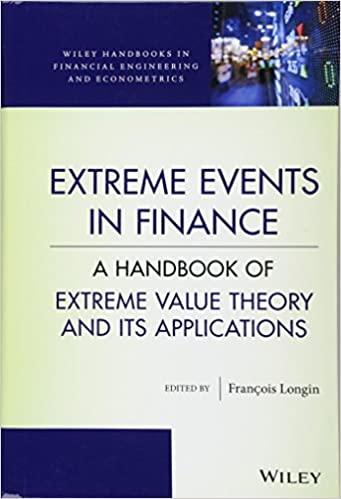Question
Your client, Joseph Smith, is evaluating three investment options that require a $30,000 investment. Each investment has a five-year horizon. In order to finance the
Your client, Joseph Smith, is evaluating three investment options that require a $30,000 investment. Each investment has a five-year horizon. In order to finance the investment, Joseph is going to sell the ZipCo stock he owns for $30,000. He has selected this particular stock because it has decreased in value and he does not see the stock recovering in the near future. Joseph's investment options are as follows: Option 1: Invest $30,000 in land. Joseph will make no improvements to the land and rent it as a pasture for the five-year horizon at $6,000 a year while actively participating in the activity. The taxes and other out-of-pocket expenses for the land will be $7,000 a year. While the land will not produce much income, Joseph thinks a shopping center will be interested in the land in five years and he will be able to sell it for $51,000. Option 2: Purchase ABC Mutual Fund for $30,000. The mutual funds strategy is growth with minimum to no income. It is expected that ABC will generate distributable capital gains of $2,800 per year. At the end of the five-year horizon, ABC is expected to be valued at $36,000. Option 3: Acquire $30,000 in Axel Corporation stock. Axel consistently pays a dividend each year that would amount to $2,500 for Joseph. At the end of the five years, Joseph could sell the stock for $37,500. Joseph provides you with the following information: Joseph's salary is projected to increase 5% each year. His beginning salary (Year 1) is $127,500. Joseph has no deductions in computing adjusted gross income other than those that would occur as part of the investment option scenarios. Joseph will be taking the standard deduction for each of the five years. Joseph marginal tax rate and dividend tax rate are 28% and 15% each year, respectively. The ZipCo stock was purchased ten years ago for $65,000. Joseph wants to choose the alternative that produces the best after-tax return for him over the five-year horizon. He is aware that there may be tax restrictions that limit the advantages of the options. Answer the questions below about each investment option and evaluate which option would be best given your clients goals. Ignore the time value of money.
Option 1 - Pasture Land Amount
Net 5-Year Cash Flow
Total Suspended Passive Loss After Year 4
Remaining Capital Loss Carryover After Year 4
Option 2 - ABC Mutual Fund Amount
Net 5-Year Cash Flow Remaining
Capital Loss Carryover After Year 3
Remaining Capital Loss Carryover After Year 4
Option 3 - Axel Stock Amount
Net 5-Year Cash Flow Remaining Capital Loss Carryover After Year 3
Remaining Capital Loss Carryover After Year 4
Considering cash flow effects and utilization of the ZipCo stock capital loss, which is the best investment option? Best Investment Option
Step by Step Solution
There are 3 Steps involved in it
Step: 1

Get Instant Access to Expert-Tailored Solutions
See step-by-step solutions with expert insights and AI powered tools for academic success
Step: 2

Step: 3

Ace Your Homework with AI
Get the answers you need in no time with our AI-driven, step-by-step assistance
Get Started


